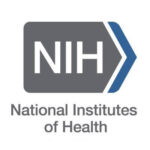Join Us for CSDE Autumn 2024 Lightning Talk & Poster Session!
|
On December 6th at 12:30pm get ready to appreciate new research from Isaac Sederbaum (Doctoral Candidate, Public Policy and Management), Mingze Li (Doctoral Student, Sociology), Sarah Kilpatrick (MS Student, Data Science) and Man-Lin Chen (Doctoral Student, Sociology). Learn more about their talks here.
These early career researchers will be presenting their research posters and lightning talks. While you learn from them, you can also enjoy refreshments and conversation with the authors and audience. We look forward to seeing you!
(read more) |
 |
|
|
Pittman Authors Article on Black Mothers’ Strategies of Resistance During the Jim Crow Era
|
History is often best understood through analysis of individuals’ lived experiences. In a new article, LaShawnDa Pittman (American Ethnic Studies) and co-authors analyze the oral histories of 210 Black women to shed light on their experiences and strategies for resisting the “interlocking systems of oppression” of the Jim Crow Era (1881-1964). The article, entitled “Freedom Choices: How Black Mothers Living in Jim Crow Protected Their Children from Anti-Black Racism and Prepared Them for Success” was published in Genealogy. Read the article here.
(read more) |
 |
New Research from Ozeryansky and Co-Authors on the Health of Ukrainian Refugees
|
Prior research on refugees’ health has found that they frequently report poor health, but systematic analysis of refugees’ health is still limited. To address this research gap, CSDE Trainee Larisa Ozeryansky recently co-authored an article which analyzes survey data who fled the war in Ukraine for Norway in 2022. The article, entitled “Trends in the health status of Ukrainian refugees in Norway according to month of arrival during 2022” and published in BMC Public Health, found that refugees who arrived later in the year reported poorer long-term health but less psychological distress than those who arrived earlier. Read the study here.
(read more) |
 |
|
|
Sign up to join the Early Career listserv!
|
We invite early career faculty affiliates to join our new mailing list, csde_earlycareer. Among other things, this is the way to find out info about our quarterly Early Career Affiliate happy hours, and you won't want to miss those! These will be a great way to meet up with other junior scholars in a fun and casual atmosphere over snacks and drinks. Who counts as early career, you ask? Typically we mean folks who are pre-promotion (i.e. assistant professor or equivalent), but we're not strict! Please note - this is for faculty only - we are strict about that. Sorry, all others!
(read more) |
 |
NICHD Hosts Fellowship and Career Development Series Virtual Q&A
|
Mark your calendars for NICHD’s Fellowship and Career Development Information Series! These virtual Q&A sessions describe funding mechanisms that support training and career development and allow participants to get answers from NICHD experts.
Future sessions in the series (all times Eastern):
Past session:
(read more) |
 |
*New* IES / NCER Research Training Grant Competition (LOI due 12/12/24)
*New* Max Planck Institute for Demographic Research (MPIDR) Population and Social Data Science Summer Incubator Program (1/8/25)
|
The Max Planck Institute for Demographic Research (MPIDR) is inviting applications from qualified and highly-motivated students for a Summer Research Visit. The goal of the Population and Social Data Science Summer Incubator Program is to enable discovery by bringing together data scientists and population scientists to work on focused, intensive and collaborative projects of broad societal relevance.
For a period of 3 months (June 2nd – August 22nd, 2025) participating students will work in small teams, with support from experienced mentors, towards a common research goal. For the summer of 2025, the focus of the program will be on three main research areas:
1) “Climate Change and Mobility” mentored by Risto Conte Keivabu, Ebru Sanlitürk, and Monica Alexander (University of Toronto);
2) “Machine Learning for Life Course Trajectories” mentored by Linda Vecgaile, Bruno Arpino (University of Padova) and Emilio Zagheni;
3) “Mortality in War Settings” mentored by Yvette Young, Diego Alburez-Gutierrez, Enrique Acosta (Centre d'Estudis Demogràfics -CED) and Irena Chen.
Learn more about this opportunity here. Applications are due by January 8th, 2025.
(read more) |
 |
Call for Abstracts: Data-Intensive Research Conference (due January 31, 2025)
|
Abstract submissions are now open for the 2025 Data-Intensive Research Conference. The 2025 conference theme is Understanding Health and Population Dynamics through Big Microdata. We seek submissions that use full count census data to examine health and population dynamics. We are particularly interested in projects that link persons, families, or communities across censuses or link full count data to other sources, including the creation of place-based measures or person-level linkages to external data.
(read more) |
 |
Updating the Definition of Sexual and Gender Minority Populations in NIH-Supported Research
Statistics indicate that as of 2024, nearly eight percent of the U.S. population identifies as LGBT, with much of this growth attributed to increases in LGBT identification among younger generations. In recent years, policies and laws have been enacted in support of LGBTQI+ communities and their well-being. For example, the 21st Century Cures Act included provisions for the NIH Director to encourage efforts to improve research related to the health of sexual and gender minority (SGM) populations, including to increase participation of SGM populations in NIH-supported clinical research and to facilitate the development of methods for conducting SGM research. SGM people were designated as a population with health disparities for NIH research in 2016 by the Director of the National Institute on Minority Health and Health Disparities in consultation with the Director of the Agency for Healthcare Research and Quality. The NIH SGM health research portfolio has steadily grown and diversified since 2015.
(read more) |
 |
CSDE Population Research Planning Grants (PRPGs) (Rolling deadline)
|
Population Research Planning Grants (PRPGs) are designed to provide in-kind support and/or funds of up to $25k* to support a wide array of activity types throughout the development of a research project. As part of our mission to complement rather than duplicate other campus opportunities such as the Population Health Initiative seed grants, we will consider funding things activities such as the use of CSDE services beyond the standard allotments for affiliates.
(read more) |
 |
CSDE Matching Support to Supplement On-campus Funding (Rolling deadline)
|
CSDE Matching Support includes in-kind or monetary support to accompany a submission to other on-campus funding mechanism, such as PHI, EarthLab, or Urban@UW. All projects must have a CSDE affiliate who is UW faculty and is listed as a PI or co-PI, with any number of other collaborators. Note that we require (PRPGs) or strongly suggest (matching funds) contacting either Development Core Director (Steven Goodreau) or CSDE Director (Sara Curran) to discuss possibilities for your specific proposal before submission.
(read more) |
 |
*New* IPUMS Health Surveys Data Update
|
The IPUMS Medical Expenditure Panel Survey (MEPS) recently announced a new data release. IPUMS now includes 2022 data released by the Agency for Healthcare Research and Quality (AHRQ) earlier this year. This initial release updates over 1,100 variables from the Full Year Consolidated, Condition, Event, Prescribed Medicine, Appendix to the Event, and Pooled Variance files and adds variables about Long COVID. Learn more here.
(read more) |
 |
NSF: Proposals Impacting Tribal Nation Resources & Interests
|
As of 5/20/2024, NSF proposals that may impact the resources or interests of a federally recognized Tribal Nation will not be awarded by NSF without prior written approval from the official(s) designated by the relevant Tribal Nation(s).
Proposers must:
- Seek guidance from the potentially impacted Tribal Nation on activities that require review and prior approval from that Tribal Nation’s authorized designee.
- Submit a written request to the relevant Tribal Nation (based on their guidance), for approval to carry out the proposed activity that requires their review and approval.
- Complete the checkbox for “Potential Impacts on Tribal Nations” on the Cover Sheet. Note, lead organizations are responsible for this on collaborative proposals & proposals with subawards considered a single unified project.
- Upload one of the following into "Other supplementary documents" of Research.gov:
- a copy of the written request to the relevant Tribal Nation to carry out any proposed activity/activities that may require prior approval from them
- written confirmation from the Tribal Nation(s) that review and approval is not required
- a copy of relevant Tribal Nation approval
(read more) |
 |
Overview of Grant Application and Review Changes for Due Dates on or after January 25, 2025
|
This notice provides the research and research training community an overview of application and peer review changes impacting grant applications submitted for due dates on or after January 25, 2025, including:
- Simplified Review Framework for Most Research Project Grant Applications
- Revisions to the NIH Fellowship Application and Review Process
- Updates to Reference Letter Guidance
- Updates to NRSA Training Grant Applications
- Updated Application Forms (FORMS-I)
- Common Forms for Biographical Sketch and Current and Pending (Other) Support
Although each of these initiatives has specific goals, they are all meant to simplify, clarify, and/or promote greater fairness towards a level playing field for applicants throughout the application and review processes.
(read more) |
 |
|
|

